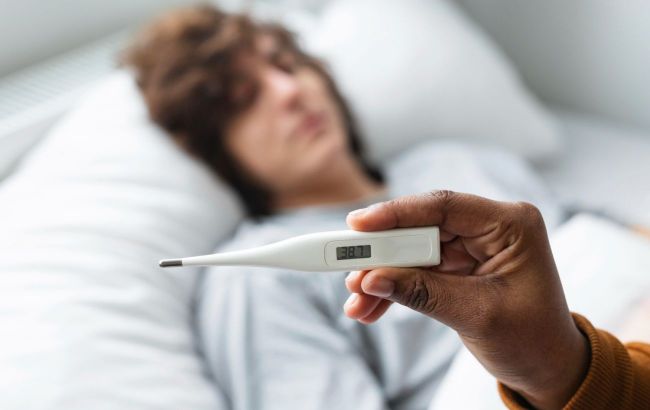How to lower temperature safely: Doctor's advice
 When you don't need to lower the temperature (illustrative photo: Freepik)
When you don't need to lower the temperature (illustrative photo: Freepik)
Many of us encounter colds or the flu with high body temperature at least once during the autumn-winter period. However, a lot of people remain unsure about what actions are appropriate and which are not in such cases to avoid worsening their health. Nutritionist Anastasiia Goloborodko on her Telegram channel tells when you should avoid reducing a high temperature.
When it's not advisable to lower the temperature
"Adults shouldn't reduce their temperature until it reaches 38.5 degrees Celsius, but for children, it's up to 38.0 Celsius, and then it's worth paying attention to their well-being. Suffering is not necessary, but the body doesn't just react like this for no reason," notes Goloborodko.
She emphasizes that if the body is robust, a viral illness will resolve in 7 days, regardless of whether it's treated or not.
"The temperature should be lowered in children with epilepsy, convulsive pathologies (including ASD), adults with HIV, as well as with superinfections, severe stages of autoimmune diseases, and very acute conditions. All other individuals can endure elevated body temperature for 2 days," explains the nutritionist.
Holoborodko clarifies that a fever for 1-2 days is an evolutionary process that aids survival. It trains the immune system. The body heats up to "kill the enemy," preventing the infection from developing into long-term consequences.
"Elderly individuals with a temperature should assess the threat from chronic diseases - the risks of thrombosis, thrombophlebitis, and other blood vessel problems," notes the nutritionist.
What to take and avoid during a high temperature
"Do not consume hot drinks, take electrolytes, and mineral water. If there are liquid stools (a reaction to high temperature), take natural sorbents 1-2 times. People with allergies should avoid consuming large doses of vitamin C, as it enhances histamine. Those who don't eat meat should not consume excessive zinc, as the metal pushes iron out and may lead to iron deficiency," explains Goloborodko.
What to provide during a high temperature:
- Plenty of fluids
- Electrolytes and B vitamins
- Vitamin A is questionable, but its purpose is to interrupt potential additional burdens from external pathogens on the mucosa. For such purposes, the vitamin must be in liquid form.
- Natural sorbents should be taken on peak days - chitosan, zeolite, bentonite, succinic acid.
"If there's no appetite, then there's no need to eat. During illness, heat-treated vegetables and protein (fish, eggs, legumes) are beneficial. If desired, minimal portions of baked potatoes and buckwheat can be consumed, along with kiwi, plums, berries, and citrus fruits," advises the nutritionist.
She also adds that during an illness one should ensure that there is a full sleep.
This material is for informational purposes only and should not be used for medical diagnosis or self-treatment. Our goal is to provide readers with accurate information about symptoms, causes, and methods of detecting diseases. RBС-Ukraine is not responsible for any diagnoses that readers may make based on materials from the resource. We do not recommend self-treatment and advise consulting a doctor in case of any health concerns.

